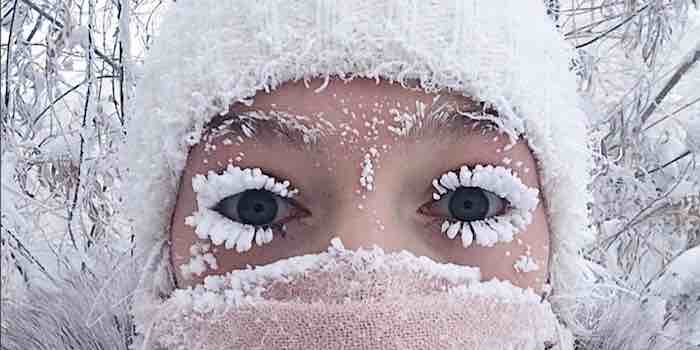In the United Kingdom, between forty thousand and fifty thousand more deaths occur during the winter months than in summer months
More Deaths From Cold Weather Than Hot Weather

The question is--which is more deadly for humans--heat or cold? The alarmists would have us believe that warming is to be avoided at all costs.
Observations from two recent papers and previous research undermine the narrative that says recent and future warming may be dangerous and undesirable. Scientists have determined that people are far more likely to die form exposure to cold temperatures than hot temperatures, and deaths attributed to excessive heat have been on the decline for decades in nearly all countries studied.
Most of the epidemiological studies that have examined the detrimental effects of ambient hot and cold temperatures on human health have been conducted in high income countries. In India, the limited evidence on temperature and health risks has focused mostly on the effects of heat waves and has mostly been from small scale studies. A recent report quantifies heat and cold effects on mortality in India using a nationally representative study of the causes of death and daily temperature data for 2001-2013. 1
The fraction of deaths attributable to moderately cold weather was 20-42 times higher than deaths attributed to 'extremely hot weather.' For all examined causes, moderately cold temperature was estimated to have higher attributable risks for all medical deaths.
In another recent paper, researchers studied mortality and temperature attribution fractions for 305 sites located in 10 different countries. Of the ten, 7 countries recorded declines in heat-related deaths since the 1980s, two remained stable (UK and Brazil), and just one country had an increase in heat-attributable deaths (Australia). 2
The researchers also found that cold temperatures exhibit larger attributable mortality (above 5%) compared to heat (around or below 1%) in all countries.
There have been other studies with similar results.
The biggest study on heat and cold deaths examined more than 74 million deaths from 384 locations in 13 countries from cold Sweden to hot Thailand. Researchers reported that cold weather kills 20 times as many people as hot weather. The findings also revealed that deaths due to moderately hot or cold weather substantially exceeded those resuslting form extreme heat waves or cold spells. 3
A study that included 259,891 cases of sudden heart attacks revealed that there were 53 percent more heart attacks in the winter months than in the summer months in both the warmer and colder states of the US. 4
In the United Kingdom, between forty thousand and fifty thousand more deaths occur during the winter months than in summer months.
5
Summary
Martin Ague Notes, "Global warming is not likely to have a negative effect on human health. Humans have successfully adapted to varying climates. There is no general temperature level at which heat suddenly becomes dangerous to human health.
6
Kenneth Richard adds, "Considering cold temperatures are for more deadly than hot temperatures, and that heat-related deaths have been declining in recent decades, it is fair to conclude that humankind has existentially benefited from recent global warming. Given theses observations, a justifiable conclusion could be that global warming is beneficial to humanity and attempts to mitigate future warming may serve to educe more human deaths, not less."
7
References
- Sze Hang Fu et al., "Mortality attributable to hot and cold ambient temperatures in India: a nationally representative case-crossover study," PLOS Medicine, July 24, 2018
- Ana M. Vicedo-Cabrera et al., "A multi-country analysis on potential adaptive mechanisms to cold and heat in a changing climate," Environment International, 111, 239, February 2018
- Antonio Gasparrini et al., "Mortality risk attributable to high and low ambient temperature: a multi-country observational study," The Lancet, 386, 369, July 2015
- Karl Kruszeknicki, Munching Maggots, Noah's Flood and TV Heart Attacks, (New York, John Wiley & Sons, 1998), 182
- Laura Lee, 100 Most Dangerous Things in Everyday Life, (New York, Broadway Books, 2004), 72
- Martin Ague, "Is Kyoto a good idea?", in Adapt or Die, Kendra Okonski, Editor, (London, Profile Books Limited, 2003), 77
- Kenneth Richard, "2 new papers: world's heat-related deaths are declining, cold weather is 20-42 times more deadly," notrickszone.com, October 22, 2018
Jack Dini -- Bio and
Archives |
Comments
Jack Dini is author of Challenging Environmental Mythology. He has also written for American Council on Science and Health, Environment & Climate News, and Hawaii Reporter.
 The question is--which is more deadly for humans--heat or cold? The alarmists would have us believe that warming is to be avoided at all costs.
Observations from two recent papers and previous research undermine the narrative that says recent and future warming may be dangerous and undesirable. Scientists have determined that people are far more likely to die form exposure to cold temperatures than hot temperatures, and deaths attributed to excessive heat have been on the decline for decades in nearly all countries studied.
The question is--which is more deadly for humans--heat or cold? The alarmists would have us believe that warming is to be avoided at all costs.
Observations from two recent papers and previous research undermine the narrative that says recent and future warming may be dangerous and undesirable. Scientists have determined that people are far more likely to die form exposure to cold temperatures than hot temperatures, and deaths attributed to excessive heat have been on the decline for decades in nearly all countries studied.